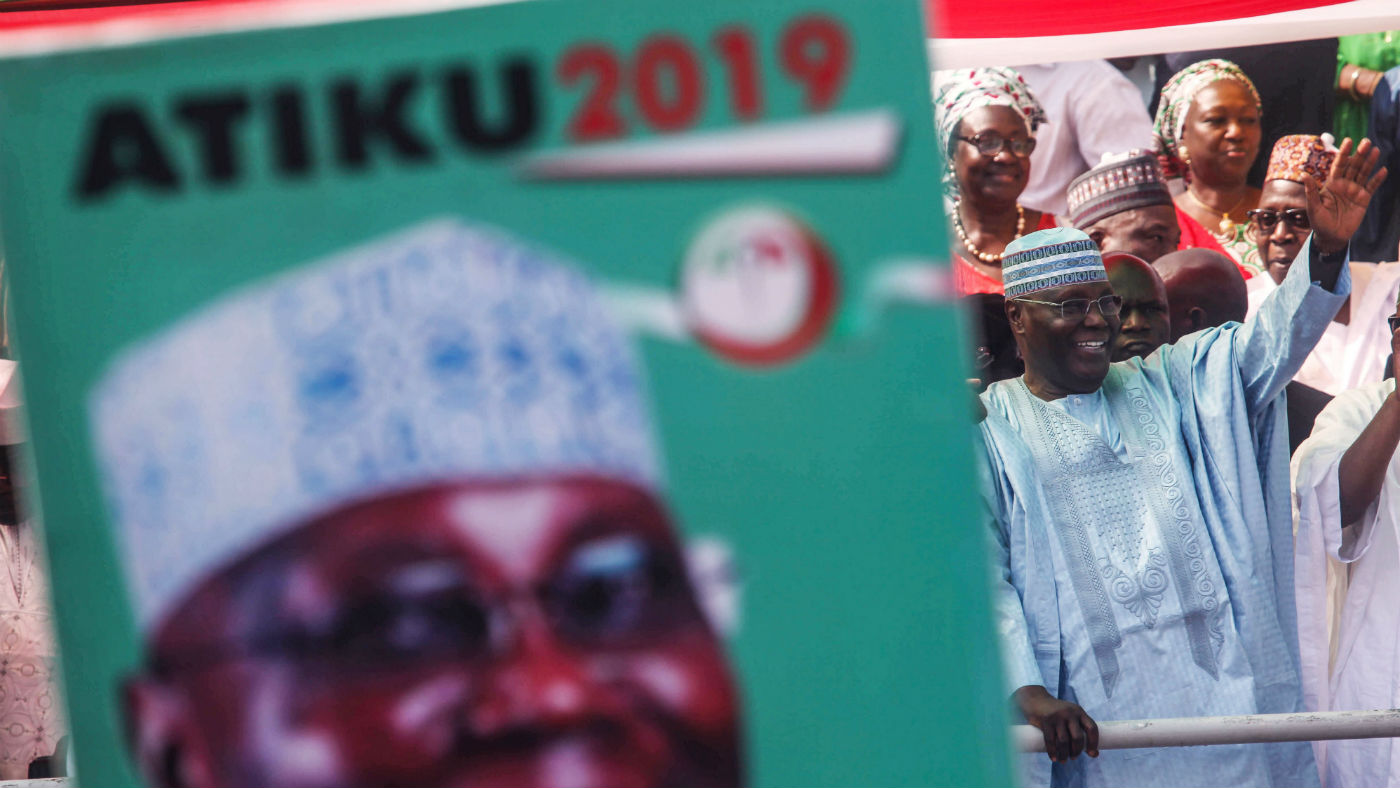Atiku Abubakar: Nigeria’s next ‘emoji president’
Opposition candidate forecast to win election to lead one of Africa’s biggest economies

A free daily email with the biggest news stories of the day – and the best features from TheWeek.com
You are now subscribed
Your newsletter sign-up was successful
Nigeria votes for a new president this week, with the latest polls predicting victory for opposition candidate Atiku Abubakar.
A survey from US-based firm Williams and Associates shows 64% of respondents believe the incumbent president Muhammadu Buhari does not deserve to be re-elected because of his poor performance in office.
Known as “Mr Honesty,” Buhari “was elected four years ago on a wave of disgust at the perceived avarice of Goodluck Jonathan’s administration – but as he fights for a second term in Saturday’s election, his efforts to bring corruption under control are widely seen as a failure”, says The Guardian.
The Week
Escape your echo chamber. Get the facts behind the news, plus analysis from multiple perspectives.

Sign up for The Week's Free Newsletters
From our morning news briefing to a weekly Good News Newsletter, get the best of The Week delivered directly to your inbox.
From our morning news briefing to a weekly Good News Newsletter, get the best of The Week delivered directly to your inbox.
According to Transparency International’s latest corruption perception index published last month, Nigeria has not improved significantly since he came to power.
“The lead-up to the elections has been marked by violence,” says CNN, “prompting warnings from the UK and US governments to say they would deny visas and likely prosecute those found inciting violence during the 16 February vote”.
On Sunday, Nigeria’s Independent Electoral Commission (INEC) confirmed two of its offices had been burned down in less than a week. The INEC did not say who was responsible for the fires, but it said it had notified the Acting Inspector General of Police on the “emerging trend of burning the electoral commissions' offices”.
Trailing in the polls, President Buhari has alleged that corrupt politicians planned to use laundered funds to buy voters during the election.
A free daily email with the biggest news stories of the day – and the best features from TheWeek.com
By contrast, “Buhari’s own enduring reputation as a “good man” of unimpeachable character is not matched by his main challenger, former vice-president Abubakar”, says the Guardian.
Popularly known as Atiku, he is seen as a good businessman capable of running and diversifying the economy to better utilize the country’s vast natural resource potential.
He has also successfully tapped into the youth vote with an emoji-based manifesto. Although in his seventies, in a country where the median age is 18 this has brought him to the brink of power.
-
 James Van Der Beek obituary: fresh-faced Dawson’s Creek star
James Van Der Beek obituary: fresh-faced Dawson’s Creek starIn The Spotlight Van Der Beek fronted one of the most successful teen dramas of the 90s – but his Dawson fame proved a double-edged sword
-
 Is Andrew’s arrest the end for the monarchy?
Is Andrew’s arrest the end for the monarchy?Today's Big Question The King has distanced the Royal Family from his disgraced brother but a ‘fit of revolutionary disgust’ could still wipe them out
-
 Quiz of The Week: 14 – 20 February
Quiz of The Week: 14 – 20 FebruaryQuiz Have you been paying attention to The Week’s news?
-
 Epstein files topple law CEO, roil UK government
Epstein files topple law CEO, roil UK governmentSpeed Read Peter Mandelson, Britain’s former ambassador to the US, is caught up in the scandal
-
 Iran and US prepare to meet after skirmishes
Iran and US prepare to meet after skirmishesSpeed Read The incident comes amid heightened tensions in the Middle East
-
 Israel retrieves final hostage’s body from Gaza
Israel retrieves final hostage’s body from GazaSpeed Read The 24-year-old police officer was killed during the initial Hamas attack
-
 China’s Xi targets top general in growing purge
China’s Xi targets top general in growing purgeSpeed Read Zhang Youxia is being investigated over ‘grave violations’ of the law
-
 Panama and Canada are negotiating over a crucial copper mine
Panama and Canada are negotiating over a crucial copper mineIn the Spotlight Panama is set to make a final decision on the mine this summer
-
 Why Greenland’s natural resources are nearly impossible to mine
Why Greenland’s natural resources are nearly impossible to mineThe Explainer The country’s natural landscape makes the task extremely difficult
-
 Iran cuts internet as protests escalate
Iran cuts internet as protests escalateSpeed Reada Government buildings across the country have been set on fire
-
 US nabs ‘shadow’ tanker claimed by Russia
US nabs ‘shadow’ tanker claimed by RussiaSpeed Read The ship was one of two vessels seized by the US military